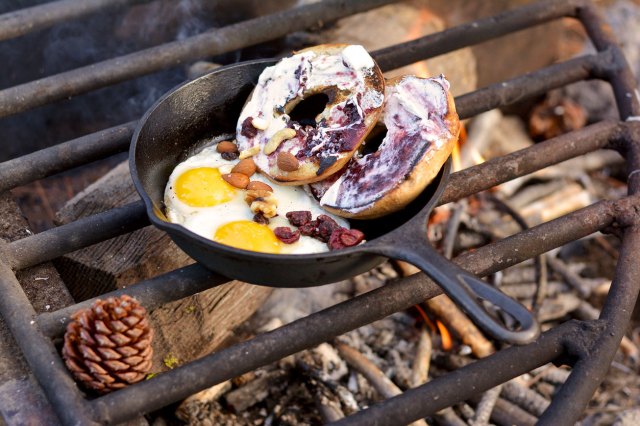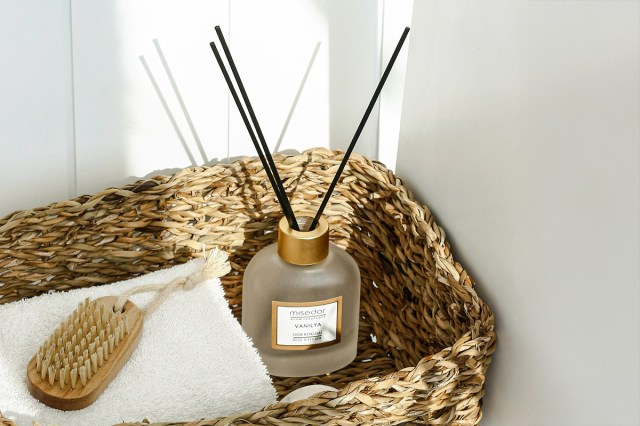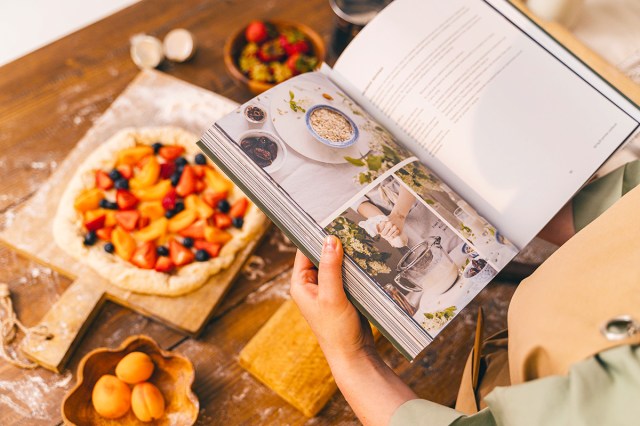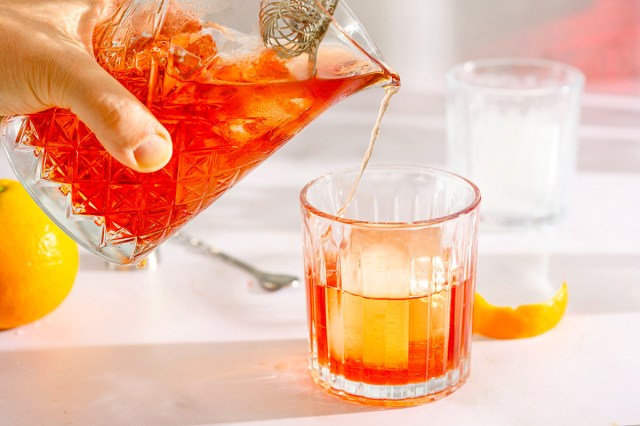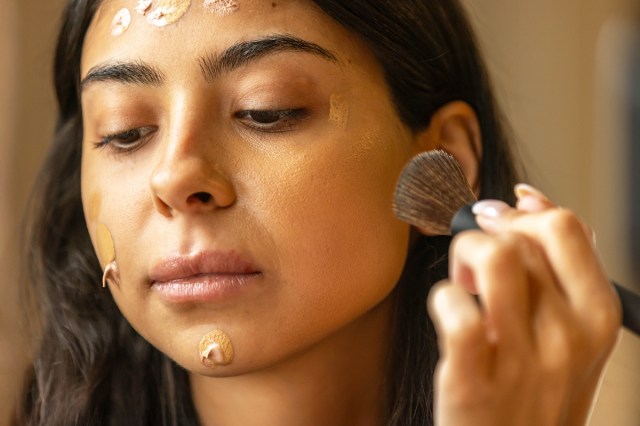Many people, from amateur home cooks to professional chefs, swear by cast iron pans for their strong heat, ease of use, and possible flavor-enhancing qualities. You may be long familiar with non-stick and stainless steel cookware but have yet to bite the bullet when it comes to cast iron. Some cooks might be intimidated by the heavy-duty pan and its maintenance. For one, can you use soap on those things or not? Luckily, we’re here to set the record straight on cast irons so you can get to dinner.
Prices are accurate as of May 21, 2024. Subject to change. All featured products and deals are selected independently and objectively by the author. Better Report may receive a share of sales via affiliate links in content.
The Best Cast Iron Pans You Can Buy
Cooking with cast iron is easy — once you get used to it. But as any chef will tell you, the best pans do a lot of the work for you, so long as you give back. That means following best practices when it comes to cleaning, maintaining, and storing and only cooking the appropriate dishes on it. Don’t let the supposed challenge — they’re not that challenging, we promise — deter you, though. Everyone needs at least one cast iron pan in their kitchen.
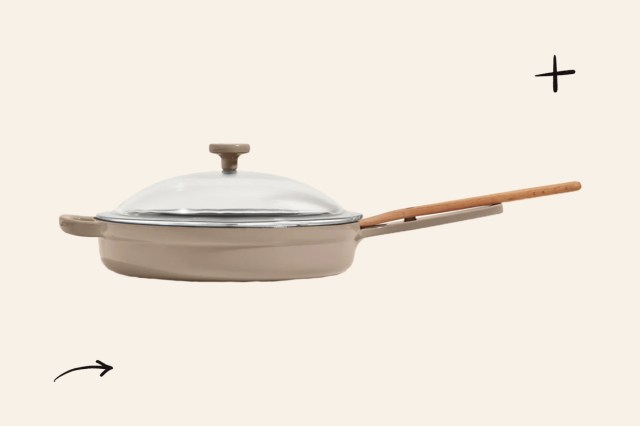
Our Place Cast Iron Pan
A modern evolution of the standard cast iron pan, Our Place’s hybrid skillet features a glossy cast iron exterior and a matte enameled cook surface, ensuring this pan is compatible with all potential cooktops, including induction. But that’s not all — the patented 8-in-1 design features a built-in resting spot for your cooking utensils, a beechwood spatula, a matching lid, and tonal heat-resistant grippers. With this pan, you can sear, braise, fry, or bake at temperatures up to 500 degrees Fahrenheit with ease.
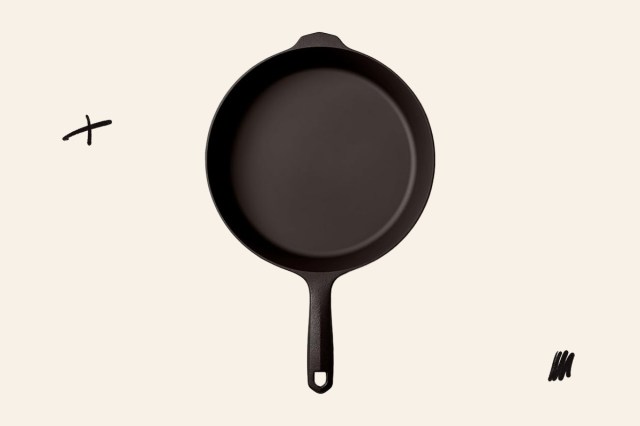
Field Company No.8 Cast Iron Skillet
For fans of the finer things, try Field Company’s popular No.8 Cast Iron Skillet, which is built like your favorite affordable option but with a few upgrades. Anyone who’s at least held a cast iron pan before knows how heavy they can be — especially in the 10+ inch diameter range. Field Company’s skillet is far lighter than the competition, but it doesn’t sacrifice heat retention or balance. Inside, the cooking surface is far smoother, too, ensuring proteins are easy to flip and potatoes and vegetables are easy to rearrange. Plus, the handle is hollowed out, which makes it easier to manage but also slower to heat up.
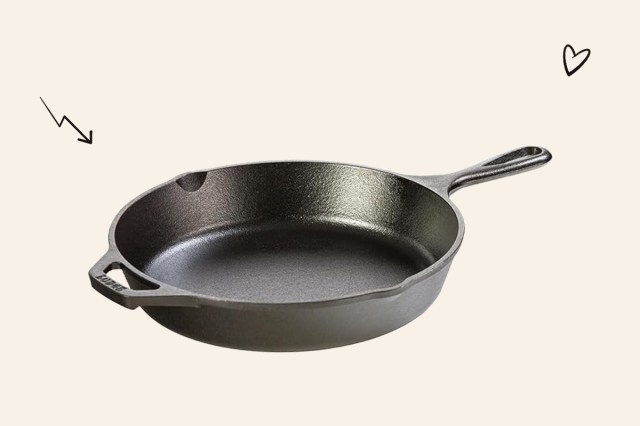
Lodge Cast Iron Pre-Seasoned Skillet
Sometimes the cheapest option is the best one. For many, Lodge’s often sub-$20 cast iron skillet is more than enough — especially beginners, who, despite the wealth of knowledge offered here, still feel skittish about cooking with a cast iron skillet. This is a solid option for those eager to push the limits of a cast iron skillet, too, like on an open fire, a high-powered gas range, or even a charcoal grill.
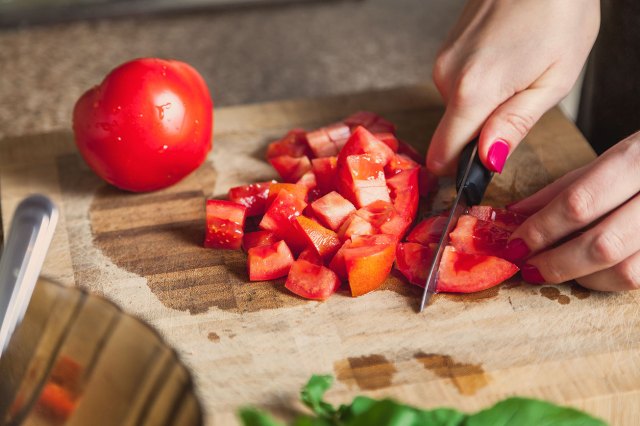
Fact: You Shouldn’t Cook Acidic Foods on a Cast Iron Pan for a Long Period of Time
Super acidic foods — think lemon, tomatoes, or wine-based sauces — can simmer in combination with other foods, but don’t leave them in the cast iron to slow-cook all day long for a Sunday sauce. The acid in foods will break down over the course of cooking, and they run the risk of damaging a less-than-well-seasoned cast iron. That said, a little acid won’t hurt a well-seasoned pan. When in doubt about an all-day cook, go with something ceramic instead.
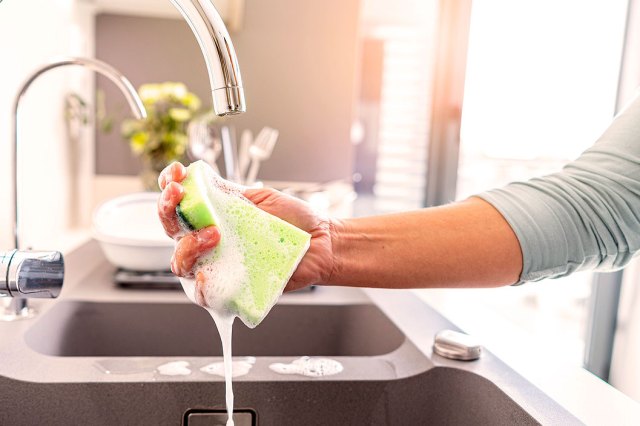
Myth: Using Soap Will Ruin Your Cast Iron Pan
You can use soap on a cast iron pan! We repeat: you can use soap on a cast iron pan! For a well-seasoned cast iron pan, a bit of soap isn’t going to hurt it. When cleaning your cast iron, try to stick to a handful of drops of dish soap at most, and if it’s clear and undyed, the better. Soap may wind up removing some, if not all, of the oil needed to maintain the cast iron so be sure to re-season it when you’re done.
What You Need to Clean Your Cast Iron Pan
As we’ve proven, cleaning your cast iron pan isn’t an impossible task. In fact, it’s likely far easier to do than you thought. It is smart, though, to buy separate cleaning tools specifically for cast iron, which keeps your more abrasive dish soaps or detergents away from the cooking surface.
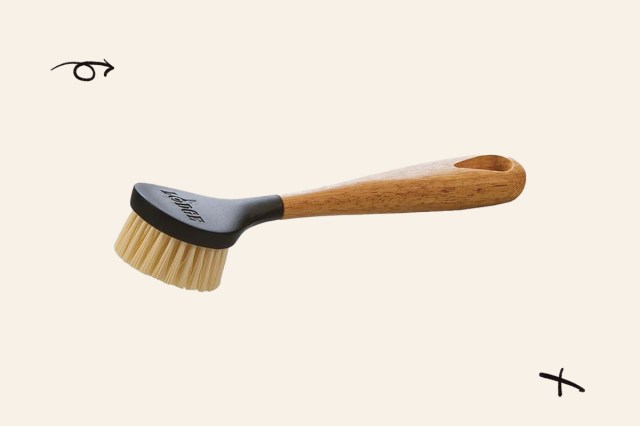
Lodge SCRBRSH Scrub Brush
Lodge’s soft-bristled scrub brush is the perfect tool for tackling light staining and loose food debris. Alongside a little dish soap, it can push through greasy residues with ease.
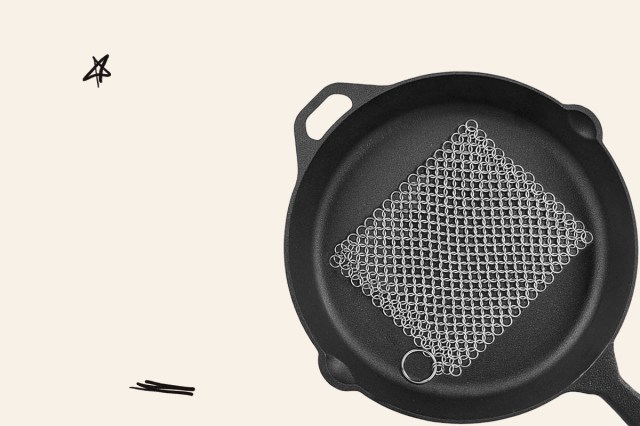
PIBC Chainmail Cast Iron Cleaner
For stuck-on food and even burnt bits, a chainmail cleaner is the smarter option. It’s abrasive but not so much so as to remove your hard-earned seasoning, but you’d still be smart, as we mentioned above, to re-season your pan once you’ve finished cleaning it.
Reader Favorites
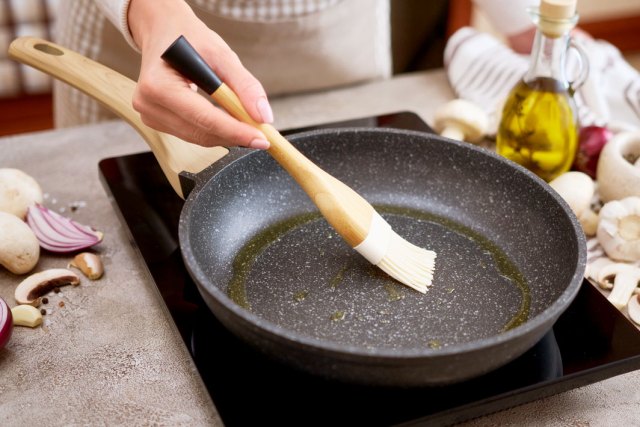
Fact: Maintaining a Cast Iron Pan Is Easy
You might not believe us, but keeping your cast iron clean, functional, and well-seasoned is a lot easier than most people will have you believe. A bit of soap, water, and a soft sponge (do not use steel wool!) will clean your cast iron like no other. You’ll be surprised at how easy it is to get food off of it. Once your cast iron is clean, run a paper towel over it to absorb the excess liquid. Then, get a thin layer of oil — no more than a teaspoon — onto the pan and heat it up on the burner on low for just a few minutes.
What You Need to Maintain Your Cast Iron Pan
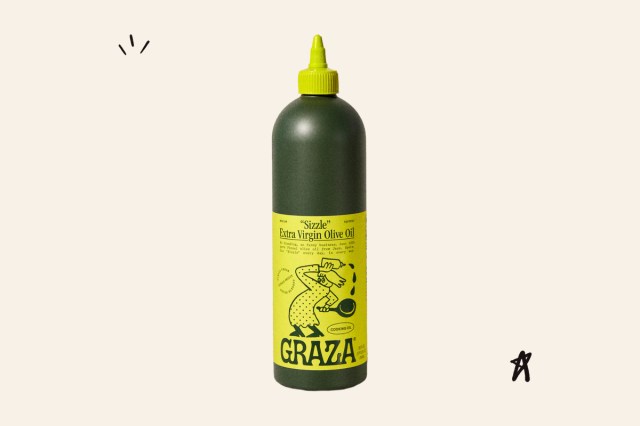
Graza Sizzle Extra Virgin Olive Oil
Whether you use olive oil or another neutral oil is up to you. If you use your pan fairly infrequently, olive oil, which typically runs a higher price than other neutral oils, is an okay option, especially since it’s probably in your kitchen already. Graza’s Sizzle Extra Virgin Olive Oil is designed to be used at high temperatures and comes finished with an easy-to-use squirt nozzle for even spreading.
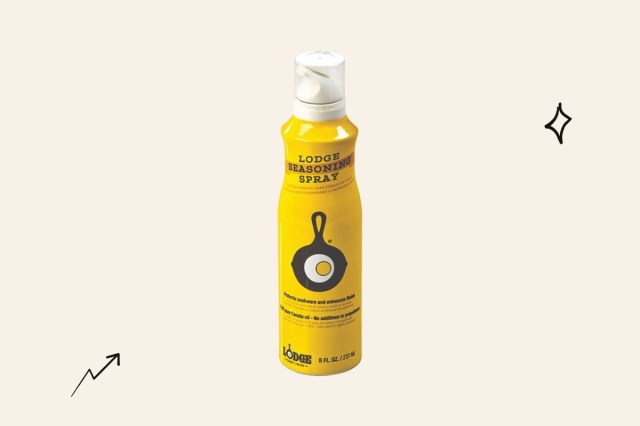
Lodge A-SPRAY Seasoning Spray
Lodge’s A-Spray Seasoning Spray is aerosolized canola oil, which makes it easy to apply an even layer. Plus, since it disperses smaller molecules, it’s easier to soak in, too.
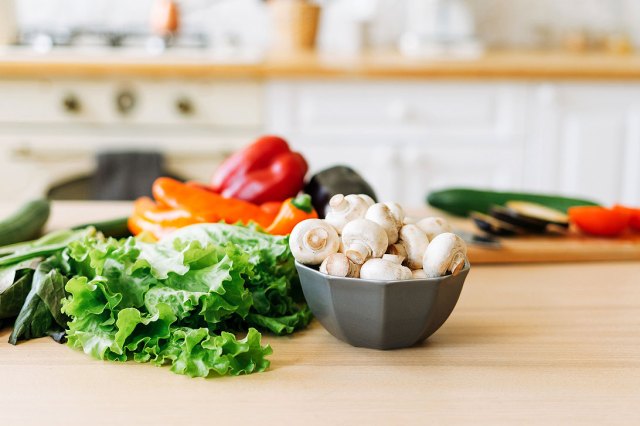
Myth: A Cast Iron Pan Heats Food Evenly
Look, does any pan heat food evenly? Even cooking is often far more reliant on the evenness of your stove, the airflow of your kitchen, and the relative thickness of what you’re cooking. But a cast iron pan, known and beloved for how hot it can cook food, is not the most reliable pan when it comes to even cooking. Depending on the wear and tear or the angle at which it’s sitting on the burner, the cast iron can get hot spots that get very, very hot. In order to avoid this, preheat your cast iron in the oven for an all-over heat.

How to Safely Cook With a Cast Iron Pan
As we explained, cast iron pans can get hot — very, very hot. And if yours is a little used, that means it can get far hotter in some spots than others. Be warned, and buy the gear needed to prevent burns.
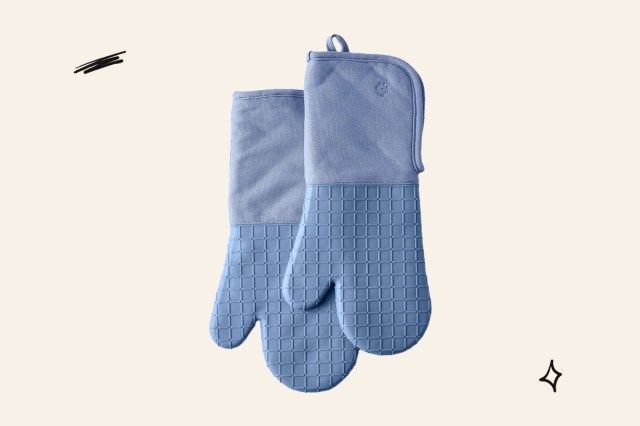
Five Two Silicone Oven Mitts
Oven mitts are an essential part of any well-stocked, safety-minded kitchen. They’ll help you handle hot pans and sheet trays, recently microwaved plates and bowls, and other items that are simply too hot to touch with bare hands.
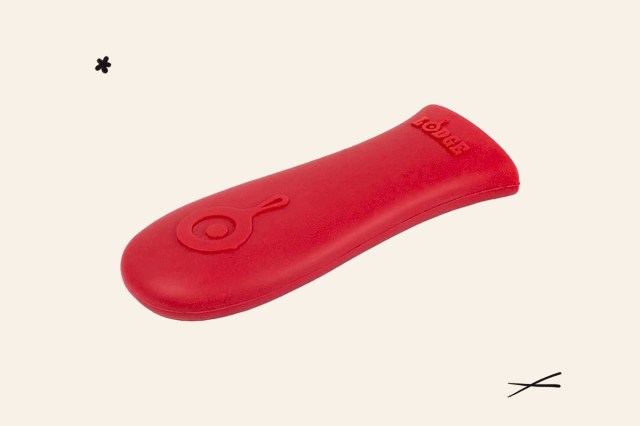
Lodge Silicone Hot Handle Holder
Along with oven mitts, a silicone handle holder is a smart bet. Not only does it act as a second line of defense, but it gives you a better grip on the handle itself, which, as we mentioned, is attached to a fairly heavy pan.
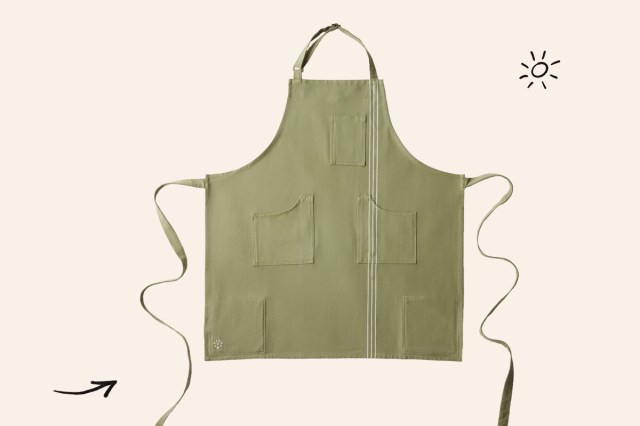
Five Two Ultimate Apron
If you’ve ever seared or deep fried before, you know the potential risks of cooking at high heats — splatters, oil stains, and plenty of other potential messes. When you saddle up behind your cast iron pan, it’s smart to do so with an apron between your favorite T-shirt and the fiery pan before you.
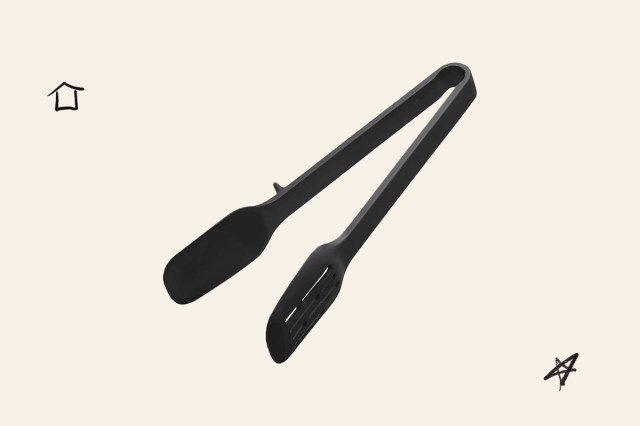
Yamazaki Home Tower Silicone Tongs
It’s not smart to lay proteins or toss veggies down with your bare hands. The foods can interact with the hot oils and trigger splashback, causing intense burns. It’s smarter to gently lay down whatever it is you’re cooking with longer tongs, allowing the oils that do splash out of the pan to land on your range or countertop, not your exposed skin.
Fact: You Can Cook Eggs in a Cast Iron Pan in Lieu of a Non-Stick One
If your cast iron is well-seasoned and well-oiled, you can cook eggs just as well as you can on a non-stick, maybe even a little crispier!

Myth: A Cast Iron Pan Will Give You More Iron
Nice try, but just because “cast iron” has the word “iron” in it does not necessarily mean you will get a boost in your iron intake. It’s true that sometimes flecks of the pan get into food cooked in cast iron, but this is dependent on the absorptive qualities of what you’re cooking and entirely dependent on the make, model, and age of your pan. It’s too hard to tell you that your iron intake will definitely increase using a cast iron pan, so stick to the supplements for the time being.
Featured Image Credit: Yena Lou/ iStock
More From Our Network
Better Report is part of Optimism, which publishes content that uplifts, informs, and inspires.
